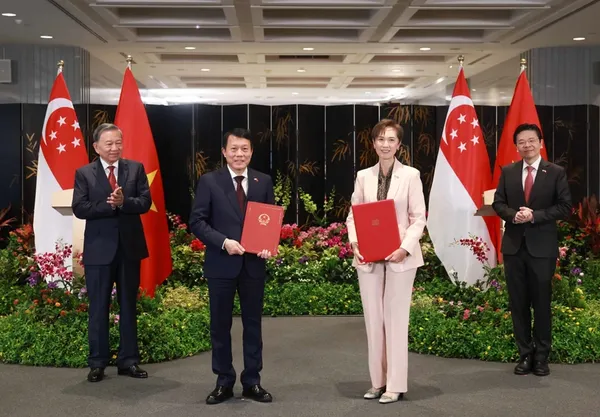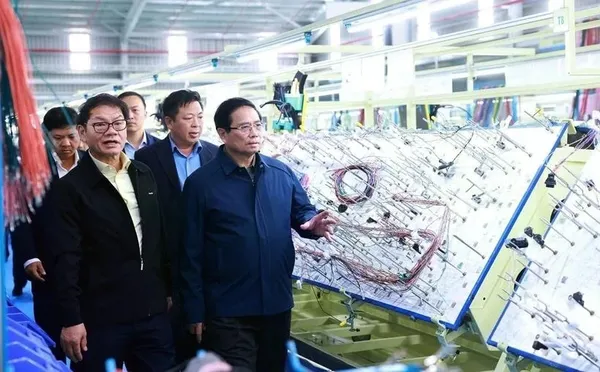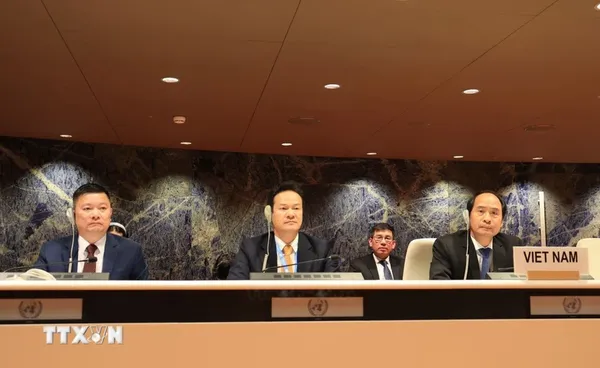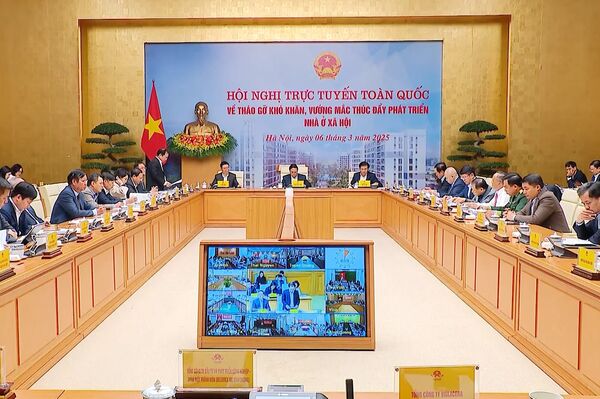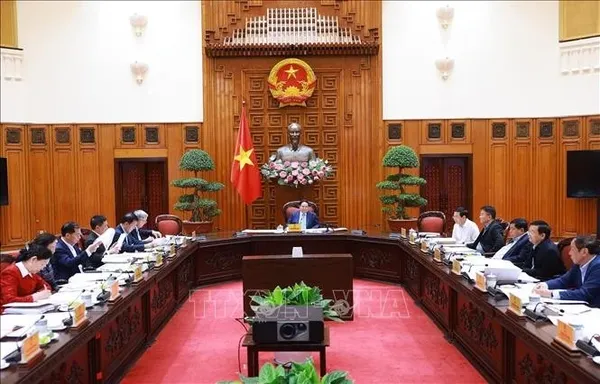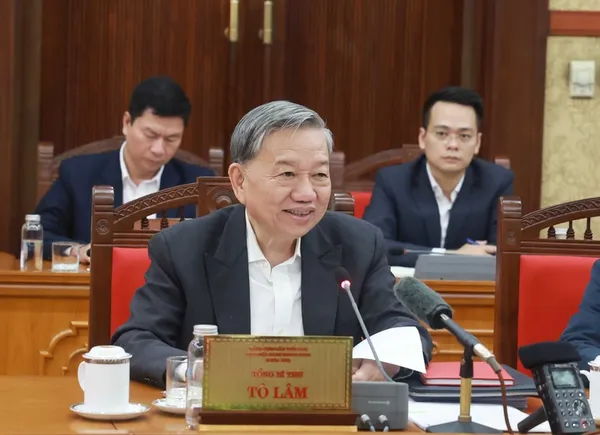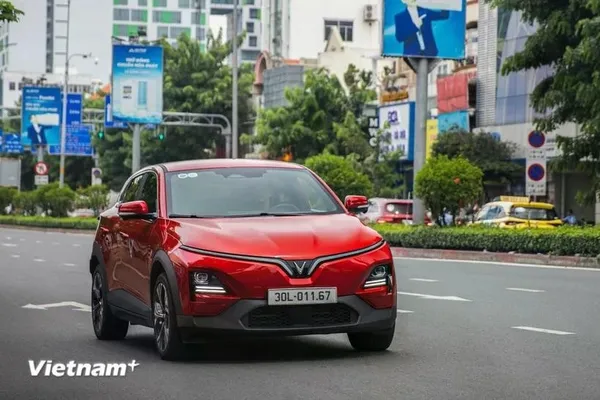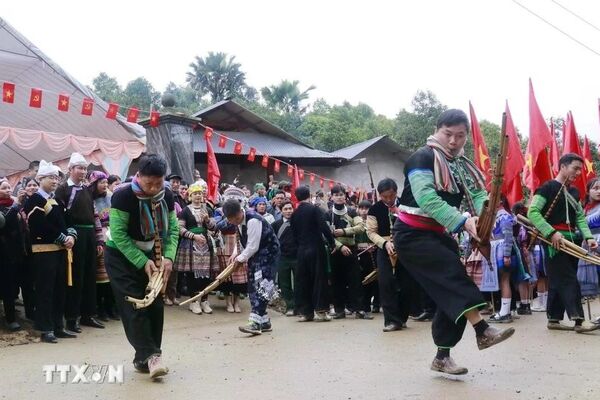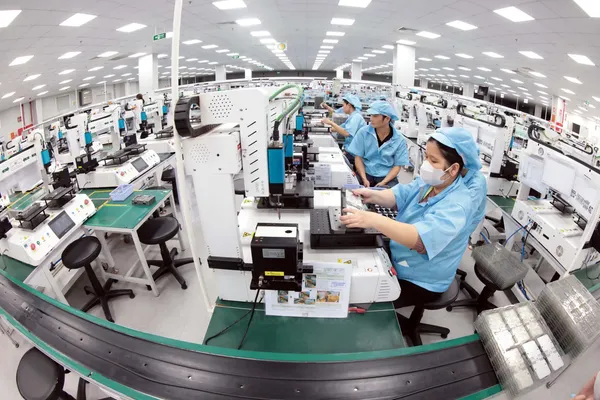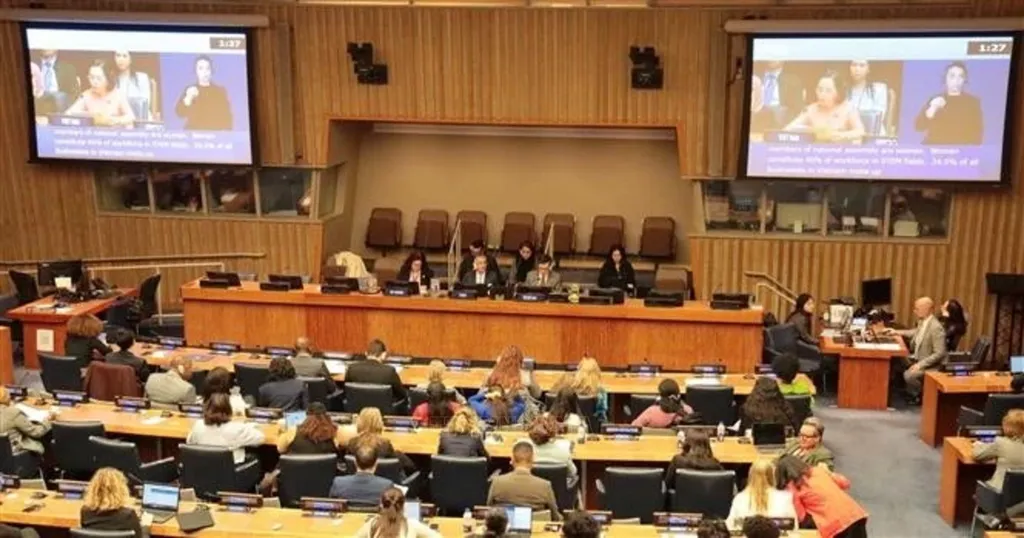 |
| This year’s session brings together representatives from nearly 200 UN member states and observers, dozens of international organisations, and more than 200 non-governmental organisations. (Photo: VNA) |
New York (VNA) – Vice Chairwoman of the Vietnamese National Assembly (NA) Nguyen Thi Thanh outlined three key priorities for advancing gender equality in her keynote speech at the general debate of the 69th session of the Commission on the Status of Women (CSW) under the United Nations Economic and Social Council (ECOSOC) on March 11.
She emphasised the need to refine institutional, legal, and policy frameworks to ensure equal participation of women, particularly in decision-making across all sectors.
Thanh also highlighted the importance of enhancing women’s economic empowerment by fostering public-private partnerships to mobilise resources effectively. This would enable women to access financial services, markets, and entrepreneurship opportunities, expand their roles in the digital and green economy, and ensure equal participation in the labour market. She further emphasised the need to recognise, reduce, and redistribute unpaid domestic and caregiving work, along with promoting the care economy.
Another priority is promoting women’s leadership in science, technology, engineering, and mathematics (STEM), digital transformation, and innovation. Thanh called for greater encouragement, support, and career guidance for women and girls, particularly in artificial intelligence, renewable energy, and digital economy.
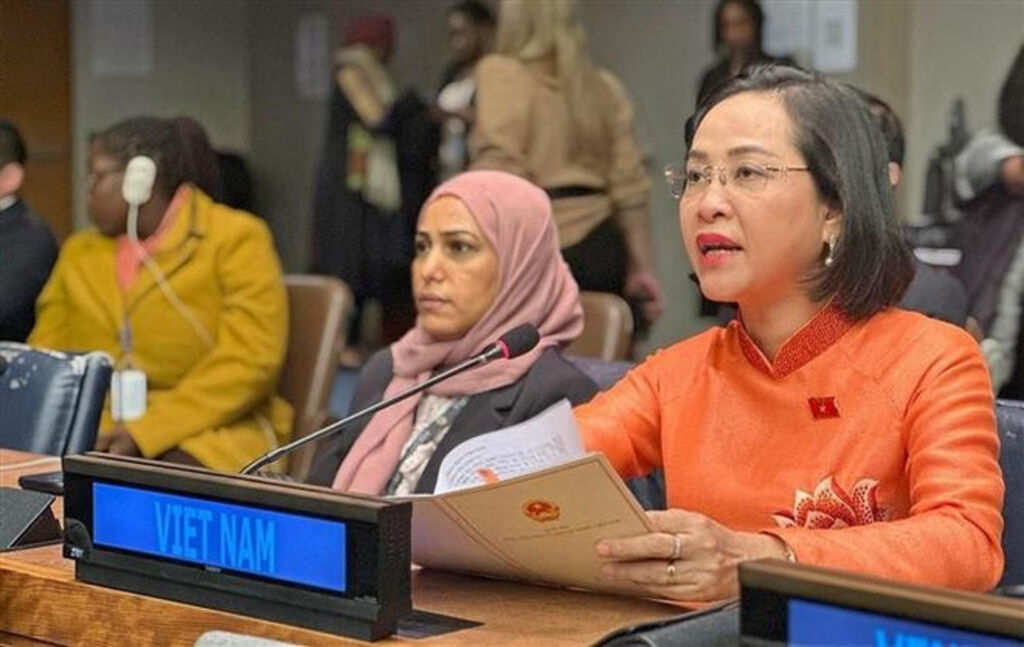 |
| Vice Chairwoman of the Vietnamese National Assembly Nguyen Thi Thanh speaks at the general debate of the 69th session of the Commission on the Status of Women. (Photo: VNA) |
Thanh reaffirmed the significance of the 1995 Beijing Declaration and Platform for Action and the international community's achievements over the past 30 years. However, she also highlighted ongoing challenges, including gender-based violence, poverty, diseases, and digital divide, which continue to disproportionately affect women and girls. She cited projections indicating that it could take 137 years to eradicate extreme poverty among women and that gender balance in national parliaments might not be achieved before 2063.
Sharing Vietnam’s achievements, Thanh noted that women account for nearly one-third of Vietnam’s National Assembly members; 40% of Vietnam’s STEM workforce is female; 26.5% of businesses in the country are owned by women; women account for 68.5% of the country’s labour force, surpassing the global average of 48.7% and 14.4% of Vietnam’s peacekeepers are women, higher than the UN average of 10.2%.
Additionally, Vietnam is actively promoting digital knowledge programmes, particularly for women and girls. Thanh reaffirmed the country’s commitment to global gender equality efforts, including its role as a member of the UN Human Rights Council (2023-2025) and an incoming member of the UN Women Executive Board (2025-2027).
Established in 1946, the Commission on the Status of Women (CSW) provides recommendations for advancing women's rights in economic, social, political, and educational fields. It also monitors the implementation of the 1995 Beijing Declaration and Platform for Action and the 2030 Agenda for Sustainable Development, offering policy guidance on emerging gender-related issues.
This year’s 69th CSW session brought together representatives from nearly 200 UN member states and observers, dozens of international organisations, and more than 200 non-governmental organisations. The session focused on reviewing three decades of progress since the adoption of the Beijing Declaration on Gender Equality and Women’s Empowerment.
In his opening remarks, UN Secretary-General António Guterres warned about persistent gender biases, violence, and discrimination - both in armed conflicts and online spaces - as well as economic inequality and declining international funding for gender equality initiatives.
Guterres reaffirmed that gender equality is a fundamental human right, calling for greater investment in women and girls, expanded access to quality education, fair labour markets, and elimination of unpaid labour disparities. He also urged the global community to combat gender-based violence and discrimination, including online harassment, and ensure women’s participation in peacebuilding, decision-making, and emerging industries./.
